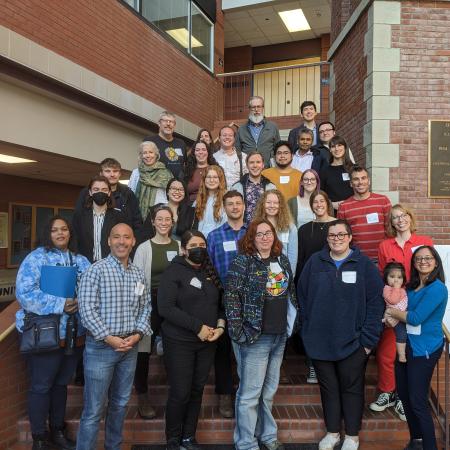A strong path to meaningful mathematics research
The Ph.D. program in the Department of Mathematics allows students to undertake specialized study and independent research in mathematics. Areas of study represented by our graduate faculty include analysis, applied mathematics, differential geometry, financial and actuarial mathematics, mathematical biology, mathematics education, number theory, numerical analysis, probability and topology. Students can enter the Ph.D. program after demonstrating mathematical proficiency by passing the qualifying exams and finding a Ph.D. advisor from among the ranks of the faculty in mathematics. Students who enter the mathematics graduate program without a prior graduate degree are expected to complete the Ph.D. degree in six years. Students who enter with a prior master's degree typically complete the Ph.D. in five years.




